I want this person contributing to PNO!!! LOL- The stain on Panama that doesn’t come out.
- By : James Bryson
- Category : History, Political FRAUD
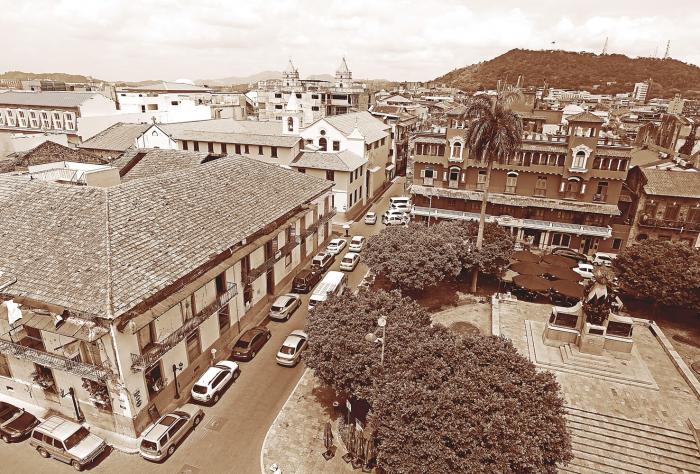
Panama, corrupt since ancient times?
Corruption, throughout Panamanian history, has been entrenched at all levels, becoming ‘almost an institution,’ says historian, geographer and diplomat Omar Jaén Suárez. Corruption is also one of the most important ‘challenges’ facing the country because it distorts the economy and the sustainable development of societies
Corruption is a scourge that does not stop. You just have to browse the pages of newspapers and the internet to see the different corruption scandals that occur daily, not only in Panama, but in different countries around the world.
The historian, geographer and diplomat Omar Jaén Suárez said that there is a “very long” tradition of corruption in Panama and throughout the continent, indeed in almost the entire world. It is a “harmful” behavior that has been rejected and even denounced by decent people, which is undoubtedly the majority. “Corruption is almost an institution in Panama and in many other places on the planet,” said the historian.
Today there are at least three levels of corruption: political corruption, major corruption and petty corruption; and among the types of corruption that exist are: extortion, bribery, embezzlement, collusion, fraud, influence peddling and lack of ethics, explained the expert in political law Lisímaco López y López.
The Panamanian essayist, playwright and sociologist Raúl Leis R. says it well, in his essay “Written Portrait of Corruption”, presented by the Friedrich Ebert Foundation in August 2014: “corruption has many faces and is not generally an isolated act , but rather a system of behavior, a kind of negative communication chain”. A report by the United States Department of State, entitled “Investment Climate Statements 2022: Panama,” published last August, warns that corruption is one of the most important “challenges” facing Panama and that its high levels increase the risk of corruption. risk of not investing in the country, despite government efforts to increase financial transparency.
Historical events
Jaén Suárez explains, for example, that in the three centuries of the colonial era, the presidents of the Audiencia and the governors were the main authorities in Panama. They were sometimes accused of acts of corruption, that is, of receiving what they called “colgas” (an expression that we now associate with Christmas gifts) so that they would facilitate their business, or they would be judged favorably, he explained.
“The hangs were gifts given to them by individuals to corrupt them to the point that the Spanish monarchy, at the end of the mission of the governors and residents of Panama, made them “a trial of residency”.
They sent a representative to investigate and try the governor and president of the Audiencia who had been here for several years. They asked the neighbors, ecclesiastical authorities, councils, etc., and if the rulers were found to be in serious fault, they ended up in jail in the castle of Chagres or in prisons in Spain.
The sale of the ravelin
At the time of the Union with Colombia there was also corruption in Panama by the rulers. A very emblematic case of corruption, denounced by Justo Arosemena (a politician who was also a man of integrity), occurred in the mid-19th century with the sale of ravelin.
The ravelin was a space of flat land that was between the walls of Casco Viejo and Santa Ana, and that the State decided to put up for sale to individuals.
Arosemena denounced that there was corruption in that real estate operation, on the part of the Hurtado family, very influential people. The same happened with the sale of properties expropriated from the Catholic Church by the liberal and progressive president Tomás Cipriano de Mosquera, since 1861.
“Illegal” public corruption often involves private entities and even if it is “legal”, it can be profoundly “immoral”, Jaén Suárez asserts.
Leis argues that “corruption also constitutes one of the greatest sources of political instability that threatens the fragile democratic institutions of Latin America. It is an ‘endemic evil’, difficult to eradicate, which crosses societies at all levels”.
Among the most recent acts of corruption, Jaén Suárez cited as an example, among many that are denounced in the media, the case of the Institute for the Training and Use of Human Resources (Ifarhu), where “the young director delivered up to hundreds of thousands of dollars to children of millionaire politicians so that they could study abroad, hiding the beneficiaries under the pretext that it is confidential, private information”, when the use of public funds must be subject to public scrutiny.
On the other hand, Jaén Suárez affirmed: “How can you buy a lottery ticket when there are so many complaints that chance is not the only condition of the draw? In no case have there been consequences, not even a reprimand, when in any ordered country the holder would have, at least, resigned from day one so as not to disturb the investigations”.
The impunity of public corruption, adds the historian, is “very serious” because this corruption reveals chaos, disorder and weakness of a government and a country and, consequently, of a society, and thus transcends and manifests a culture and a mentality of decadence and backwardness, of social and national disintegration.
The historical continuity of corruption in Panama is manifested, for example, with the coup d’état of 1968. Then, its protagonists also justified it by the great corruption of politicians of the ruling oligarchy, including ministers who had to flee the country or ended up in jails.
When asked about the most corrupt periods, for Jaén Suárez it is “very difficult to answer”, because that depends on how you want to evaluate, either by public perception, the measure used, the volume of money involved, the acts of corruption reported (not to mention the tried and convicted), and it also depends on dirty political campaigns.
“It is very difficult to say which were the most corrupt,” said the historian.
Current public corruption is associated in the collective imagination with the birth of the Republic, but it does not stop there. At the time of the first liberal governments until the 1940s, civil servants were charged up to 5% of their salary to feed, in principle, the ruling party.
Notable examples were those of presidents Rodolfo Chiari Robles and Arnulfo Arias Madrid, although we also saw it even in directors of decentralized institutions such as the Public Registry and the Institute of National Aqueducts and Sewers (Idaan) in more recent presidential administrations of the 21st century.
“It is very complex and it is not so simple” to determine which have been the most corrupt governments so far, said Jaén Suárez, for whom something that is true and has been shown is that “corruption is a kind of tax imposed by its beneficiaries to the rest of the population and above all to the majority population, especially those most in need. It is the underlying issue, very serious ”.
Also, to make valid comparisons, the amounts must be measured with the magnitudes of the budgets of each era and the relative value of money. On the other hand, there is also corruption of international origin, when a foreign company or a foreign power pays bribes to obtain something improperly. This is the case, for example, “most prominent in the entire history of the Republic because it involved tens and even hundreds of millions of dollars paid by the Brazilian company Odebrecht to obtain public contracts, and by Taiwan, to achieve diplomatic recognition from Panamanian rulers.” . All those resources, of which the corrupt “take advantage” will be lacking for quality education, adequate health and sanitation, better public infrastructure, expeditious and independent justice,
Since the 20th century there has been much more technology to detect corruption and a greater awareness of the problem on an internal and international scale. However, now in Panama opposition politicians refrain from denouncing it because deep down they seem to practice “today for you and tomorrow for me” that is added to the terribly infamous “what’s for me”.
And it is that for Jaén Suárez, when you give public funds to a millionaire because he is a politician so that he sends his children to study abroad, that money is missing, for whom? For poor talented young people from more popular sectors who do not have enough resources to study; In this behavior there is something “profoundly unfair and inhuman, of perverse theft of opportunities and of the future.”
For the historian, “the most visible corruption is that of large million-dollar projects, but the most widespread is that of officials who have a lot of discretionary power and take advantage of it to get a bribe from the user of their services, a payment that can be 5, 10, 20 or 30 dollars and even a few hundred or a few thousand. Many in Panama have been victims at one time or another of this type of situation.”
Jaén Suárez said that there are a series of conditions that favor public corruption: inappropriate, insufficient legislation stands out, a political will not to see and not supervise acts of corruption, a partially inoperative administration of justice, a weak or mediatized press , but also the unbridled clientelism that greatly favors it. For example, appointing thousands of people without real occupation, especially in the National Assembly, and filling public institutions with unnecessary people with excessive discretionary powers. “These new empowered officials often invent all kinds of procedures simply to see if someone gives them something to grease, if one can say, the solution to a thousand problems, from the person who goes to look for a certificate of something, to the one who wants to achieve a contract or win a tender. Corruption is everywhere, and it is an evil that has become endemic, despite the fact that there are also thousands of competent and honest officials, and decent politicians, with undeniable ethics and civic conscience”, affirmed the historian.
In her latest book entitled Reflections on Panama and its destiny 1990-2022, Jaén Suárez talks, among many other things, about geopolitics, the Interoceanic Canal, the Panamanian population, Panama City, land use planning, geography and history. , of the problems that public corruption also causes with high political and social costs. “Problems that can be solved if the majority decides and acts with courage and determination”, she concluded.
López, for his part, mentioned that various historical events tinged with corruption took place during the independence and separatist movements, which will be explored in a future installment.
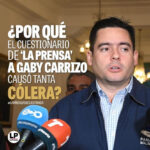
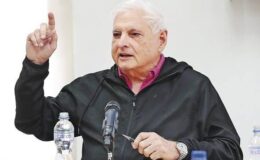
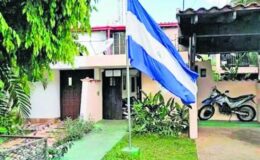
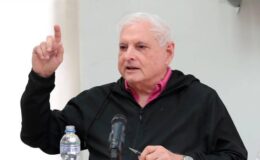
No Comments